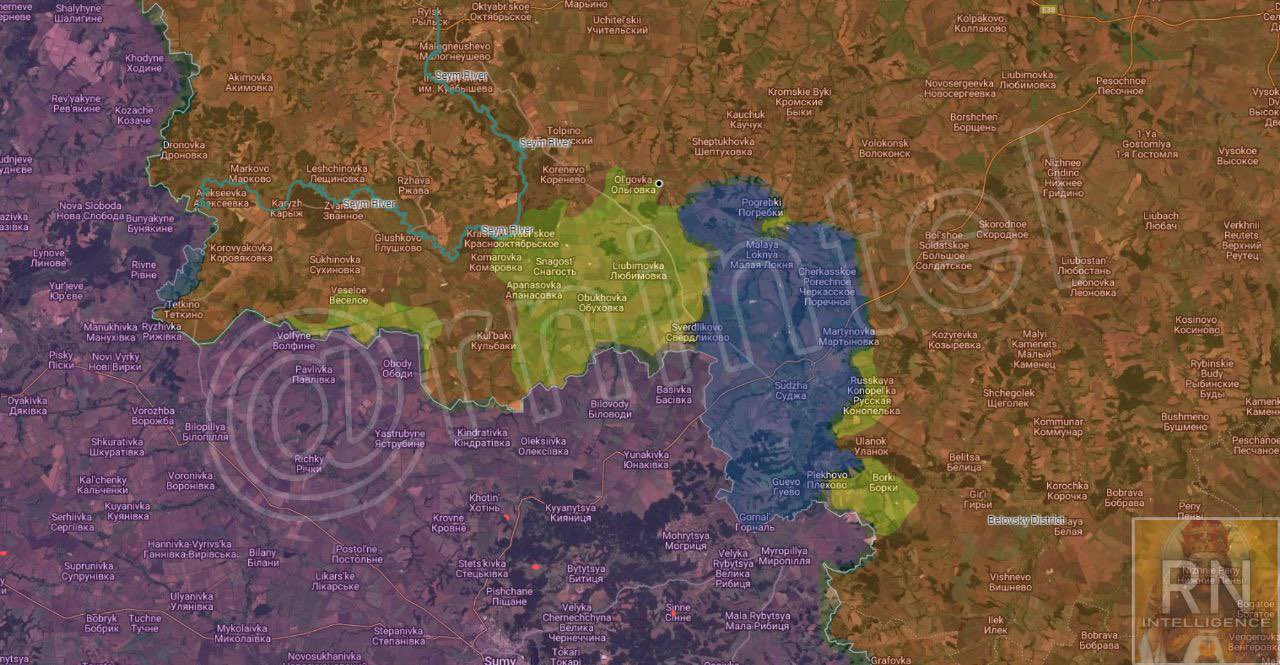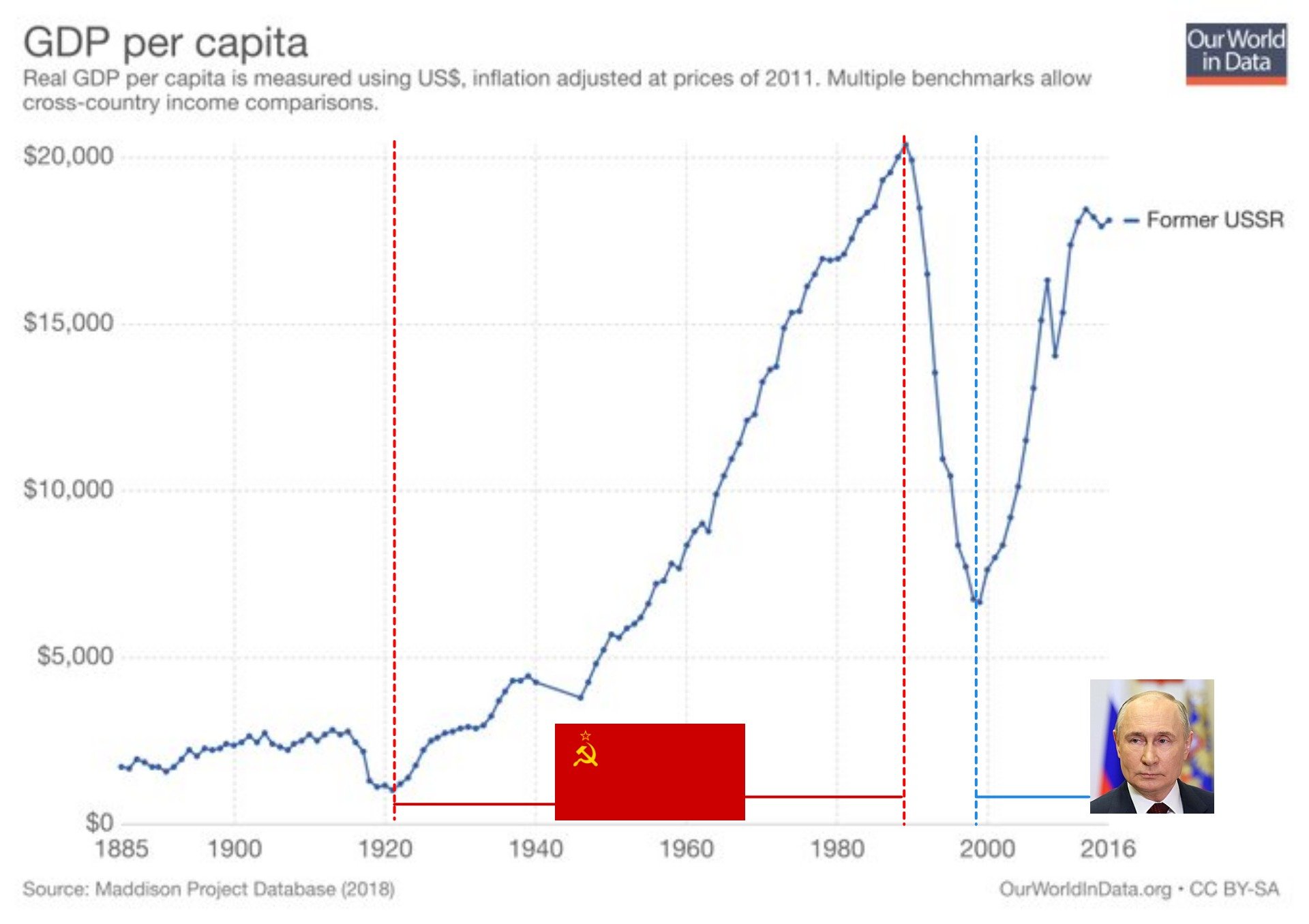See also this excellent breakdown by Arnaud Bertrand of what Whole-Process People's Democracy is and how it differs from western liberal conceptions of democracy:
https://xcancel.com/RnaudBertrand/status/1843548618361582057
I know many people in the West are extremely cynical when China describes itself as a democracy - a "Whole-Process People’s Democracy" to be precise - but very few actually take the time to understand what China actually means by that, how it differs from liberal democracy and why they think it's a good system for them.
This article written by the President of Renmin University and just published in Qiushi (the official theoretical journal of the Central Committee of the CPC) is a relatively good primer for this:
First of all, I think we're enormously confused when we try to understand the Chinese system through our vision of the Chinese Communist Party as a political party like we think of the Democrats or Republicans in the US. And we're therefore immediately led to conclude: "one party system, therefore not a democracy".
However when you look at how the Chinese describe the CPC, the equivalent in the West isn't a political party but the Republic or constitutional order itself.
Indeed, as the article makes clear the CPC is presented as the fundamental guarantor of the entire political system and the people's interests. The article describes how "whole-process people's democracy ensures unity between the leadership of the CPC, the running of the country by the people, and law-based governance." This integration of party, people, and law presents the CPC not as one competing entity within the system, but as the overarching framework that ensures the system's coherence and functionality. The CPC is portrayed as the institution that "accurately gauge[s] the public's pulse in governance and reflect[s] the public will," a role that liberal democracies would be ascribed to the entire apparatus of democratic governance, not to a single political party.
So that's the first thing. In effect China isn't a "one-party state" but a "zero party state" with the CPC as the embodiment of the state itself, functioning not as a competitor for power but as the permanent custodian of the people's mandate.
Secondly, it's key to understand what China means by "whole process" and by "people's democracy".
Whole process effectively means that their democracy isn't limited to the periodic voting that characterizes Western liberal democracies, which China argues is too limited, too intermittent and frankly too corrupt to be truly representative of the people's will. Instead the Chinese conception, as outlined in this article, envisions democracy as a constant, pervasive element of governance and daily life.
The idea of "whole process" is that democracy should be a constant process of engagement between the government and the people in order to have policies which are more responsive to people's needs and are shaped in real-time as opposed to just at election time.
Concretely this is embodied by institutions like the Chinese People's Political Consultative Conference (CPPCC) at the national level (where representatives from various social groups and different parts of China offer input during the policy-making process), or residents' committees and village committees at the grassroot level which are vehicles for people to participate in decisions that affect their daily lives, from local development projects to community services. There are also myriads of channels for ordinary citizens to supervise government actions (like report corruption or misconduct by officials) or give feedback and suggestions. And there is of course the fact that there are 100 million party members in the country who live among the population and are tasked with understanding what the people need or want.
In effect what "whole process" means is that China's democracy isn't about the spectacle of election campaigns and the (often hollow) promises of competing parties, but about fostering a culture of continuous dialogue, consultation, and collaborative problem-solving between the government and the people.
It also means that China's view of democracy is outcome-oriented as opposed to procedural. The idea being that what really matters are the practical results of governance (as per the article: "delivering sustained, stable, and sound national development") as opposed to viewing mere electoral processes as the basis of democratic legitimacy.
Now, what does "people's democracy" mean? Aren't all democracies "people's democracies"?
"People's democracy" is a historical communist term to contrast with what was termed "bourgeois democracy", where the state in capitalist countries was seen as offering only formal political rights while maintaining economic inequality and the dominance of the capitalist class.
Whilst the meaning has evolved somewhat since then, it still retains this idea of prioritizes the welfare and will of the masses over the interests of elites or special interest groups. As the Quishi article states, China's policies must "truly reflect the people's concerns, embody their aspirations, promote their wellbeing, and meet their desire for a better life."
This idea also has roots in traditional Chinese culture, which has always emphasized collective harmony and social cohesion over individualism. In contrast to Margaret Thatcher's famous assertion that "there's no such thing as society" - now widely held in the West - the Chinese worldview sees society not as a mere aggregation of individuals, but as an organic entity with its own existence and importance. This perspective is reflected in the article's emphasis on "fostering social harmony" as a key goal of their democratic system.
Lastly, in a "people's democracy", there's also idea that the people are not just voters, but the driving force behind national development. This perspective is clearly reflected in the article, which emphasizes that "the people are the true driving force behind history." It goes on to state that Chinese modernization "must firmly rely on the people, respect their creativity, and harness their collective wisdom and strength."
This view stands in contrast to liberal democracies where citizens' primary political role is often reduced to choosing between competing parties. In the Chinese system, the CPC's role is also that of an organization that mobilizes and channels the people's energy and is able to effectively harness their collective power for national development.
Last point, which I'm sure many of you will be asking themselves is: "yes that's all good and well, but is it really a democracy if people can't choose their rulers?"
The Chinese view on this would be that it more democratic to have rulers selected based on objective meritocratic criteria, based on how well particular officials have served the people and on exam results, than on opinions shaped by candidates' skills at campaigning or at appealing to narrow interest groups.
Also, as the article emphasizes in China's system accountability is built into ongoing processes and institutions (and not just through elections): "leading Party and state bodies and their personnel are required to exercise their powers in strict accordance with statutory mandates and procedures and wholeheartedly serve the people." Which is hard to argue when you look at the sheer number of officials who get disciplined or even sent to jail every year, even some at the very top. No other country on earth has its officials face such level of scrutiny and accountability. And as we've seen before there's direct public oversight here too as the people are encouraged to report officials if they're corrupt or engage in misconduct.
Lastly, as stated before, the Chinese system provides numerous channels for people to influence policy and governance beyond just choosing leaders. So the concept of "official" is somewhat different from Western notions. In China's whole-process people's democracy, officials are seen more as executors of the people's needs and will, rather than disconnected decision-makers. Their legitimacy stems not from being elected, but from how effectively they implement policies that reflect and serve the people's interests. The idea is to have a system where political legitimacy is continuously earned through tangible achievements rather than periodically granted through ballots.
So there you go, admittedly a very different view of democracy from what we're used to in the West. You're obviously free to think whatever you want about it but I like the "Ideological Turing Test" idea, where you shouldn't be allowed to criticize something if you aren't able to explain it in ways indistinguishable from that of someone who defends the position. As such this gives you a brief overview of how China sees its democracy, from their viewpoint, far from all-too-easy caricatures of it.
And personally that's what fascinates me most about China: how it sees the world in dramatically different ways from the West. Ways that challenge us to question so many things we take for granted, like in this instance the nature of representation or our approach to political legitimacy.
We often pride ourselves in the West on our openness to "diversity" but typically what we mean by that is a mere ersatz of diversity, people who remain well within the Overton window. What we have here with China is TRUE diversity, not just in appearances only, but in core concept of philosophy and societal structures. And instead of fearing it or smearing it as we so often do, we should instead engage with it, try to understand it as it offers an immensely necessary mirror through which we can reflect on ourselves.







You should wear an Easter Lily instead.